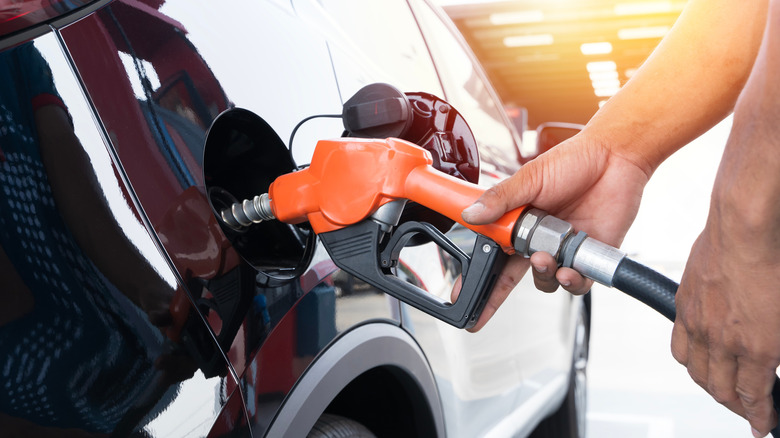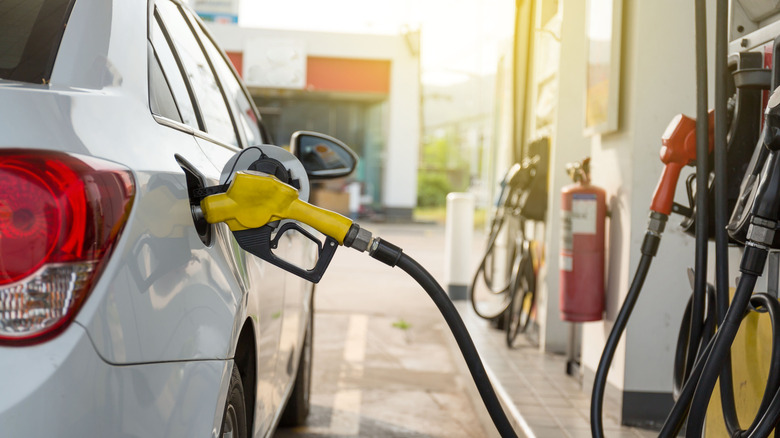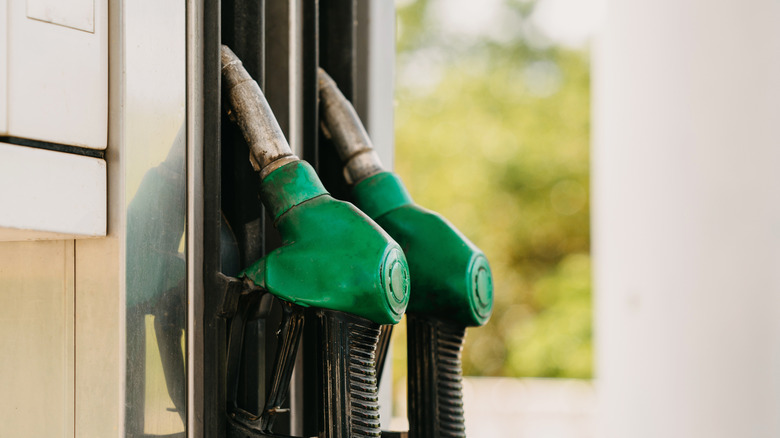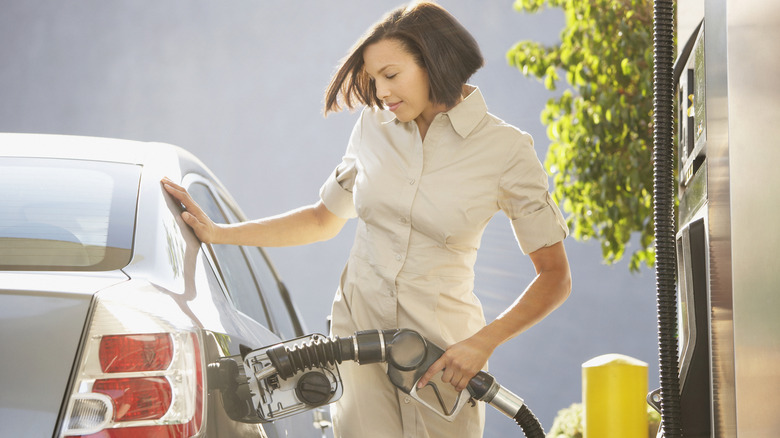Why It's Illegal To Pump Your Own Gas In New Jersey
There is a law in Alabama that makes it illegal to wear a fake mustache in a church if it causes laughter. In Nebraska, you can't get married if you have an STD. Using reptiles in religious services is banned in Kentucky, dyeing baby chicks is prohibited in Illinois, catching fish with your bare hands is outlawed in Indiana, and pumping your own gas is illegal in New Jersey.
These regulations may seem absurd, but they really are in place, just like many bizarre driving laws in states across the country. Most were likely passed for good reasons and should be understood within the context of American society at the time when they were enacted. They are, for the most part, relics that lawmakers haven't gotten around to repealing or amending yet.
There is an interesting story behind each of these laws, but most people probably don't color their baby chicks or use reptiles during religious ceremonies. Yet, everyone pumps gas, usually on their own — except in the state of New Jersey. Here's why.
The reasoning behind NJ's strange gas pumping law
The rationale behind New Jersey's strange gas pumping law is simple: self-service gas stations are a safety risk and a potential threat to public life.
"Because of the fire hazards directly associated with dispensing fuel, it is in the public interest that gasoline station operators have the control needed over that activity," the law states, claiming that "when customers, rather than attendants, are permitted to dispense fuel, it is far more difficult to enforce compliance with safety procedures." The legislation also cites "the risks of crime and fall-related personal injury," exposure to toxic fumes, and even says that self-service is discriminatory against low-income individuals.
Some of these arguments seem reasonable, but in reality, millions of Americans all over the country pump their own gas every day. And though there are definitely some things you should keep in mind when pumping gas to stay safe, American drivers seem to be doing fine in terms of safety from accidents, spills, and exposure to hazardous chemicals. Either the government of New Jersey sees something that the other 49 state governments do not and wants to protect citizens from the dangers of gas stations at all costs, or there is something else at play.
The real reason behind NJ's gas pump law
There was, indeed, something else at play when the law was originally enacted. Nj.com journalist Paul Mulshine used one word to describe it: corruption.
New Jersey's ban on self-service gas stations dates back to 1949. It was enacted in response to a creative business move by a man named Irving Reingold. In late 1940s New Jersey, gas was selling at 21.9 cents a gallon — not due to the invisible hand of the market working as intended, but because local gas station owners had made an agreement to keep it at that price.
Being a savvy businessman, Reingold opened up a self-service gas station on Route 17 in Hackensack, where he sold gas for 18.9 cents a gallon. It worked. Just like we use gas price apps today to find the best deal, New Jersey drivers back then didn't mind pumping their own gas to save a nice chunk of change, so business was booming. Until other gas station owners caught wind, that is and started scheming.
At one point, Reingold's gas station was allegedly shot at. But that did not deter him — he solved this problem by installing a bulletproof glass. What ultimately deterred Reingold was the bill that passed in 1949 and effectively outlawed his business model. Soon after that, the prices went back up, and Reingold left the gas station business for good.
Why New Jersey residents still don't pump their own gas
If you ever drive through New Jersey, there's a decent chance you'll come across a car with a bumper sticker that says, "Jersey girls don't pump gas." Even if it may have been passed as a result of corruption, the strange 1949 gas station law has become a unique part of New Jersey's identity and a source of pride for many Jerseyites.
Not a single other state in the nation has a similar law in place (Oregon had one until 2023, when it was officially revoked). The odds of New Jersey doing the same at some point in the near future seem very low. Local politicians have made it clear that they do not want to touch the issue. If there was ever any hope that the situation might change, New Jersey Gov. Phil Murphy poured cold water on the possibility in 2019 when he declared that making such a move would be "political suicide."
No matter where you're located, filling up your car on certain days of the week is a reliable way to save money. If you're in New Jersey, though, you just can't do it yourself.



